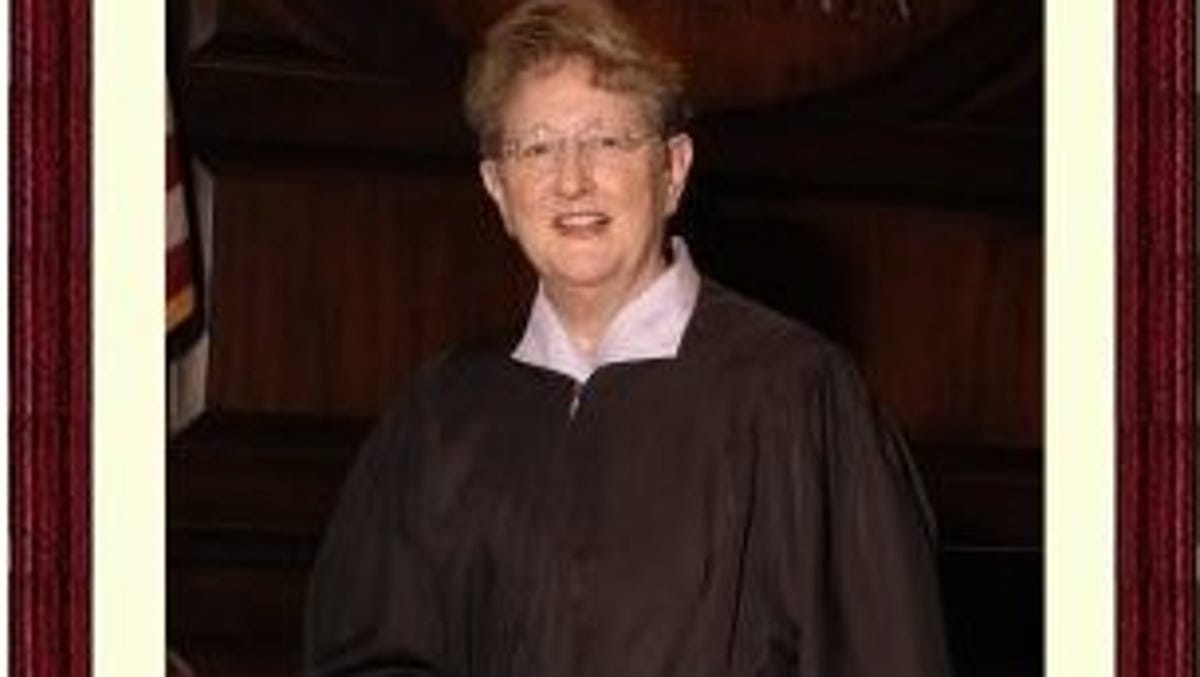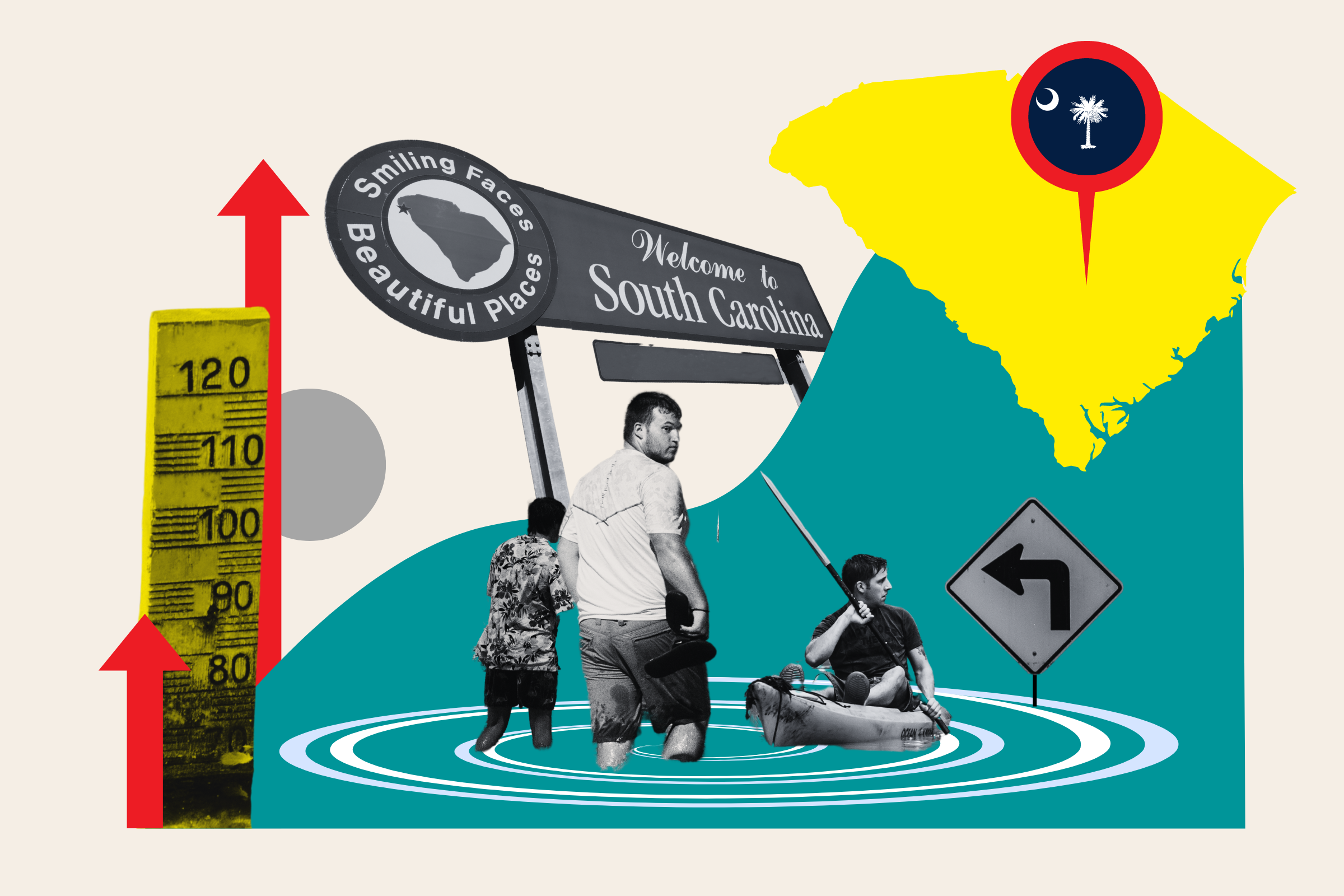Uncommon Knowledge
Newsweek is committed to challenging conventional wisdom and finding connections in the search for common ground.

Alex Murdaugh’s attorneys are seeking a new trial
Attorneys for convicted murderer Alex Murdaugh want a new trial after accusing the court clerk of improperly influencing the jury. (Sept. 9)
AP
South Carolina’s most notorious modern criminal, a disbarred attorney who has made Palmetto State history with a multi-million dollar financial crime spree capped off by two murders, will now stand before a judge who has her place in state history.
On Dec. 18, the Supreme Court of South Carolina ordered that Jean Hoefer Toal, a retired Chief Justice of the S.C. Supreme Court, will assume jurisdiction over all lower court matters related to Murdaugh’s recent murder convictions and a pending motion for a new trial.
Toal is the first woman and the first Roman Catholic to serve as a Justice of the South Carolina Supreme Court.
The order, signed by Donald W. Beatty, the current Chief Justice of South Carolina, stated that Toal “be assigned exclusive jurisdiction for the limited purpose of presiding over Defendant’s motion for a new trial in the above matters.”
“Justice Toal shall decide all matters about these cases, including motions to appoint and relieve counsel, and shall retain jurisdiction over these cases regardless of where she may be assigned to hold court and may schedule such hearings as may be necessary at any time without regard as to whether there is a term of court scheduled,” the order continues.
Judge Clifton Newman, the circuit judge who presided over Murdaugh’s six-week double murder trial in Walterboro and handed down consecutive life sentences March 3 after a Colleton County jury deemed Murdaugh guilty, had previously requested to be removed from all post-trial matters related to Murdaugh’s murder cases, states the order.
Murdaugh’s criminal defense team, led by Richard Harpootlian and Jim Griffin, had filed motions demanding a new judge based on what they considered improper statements made by Newman during sentencing, and afterward in public appearances and media interviews.
Newman, who is just weeks away from retirement, voluntarily stepped down without the action of a higher court in those motions.
On March 2, Murdaugh was convicted of the June 7, 2021, murders of his wife, Margaret Kennedy Branstetter Murdaugh, and younger son, Paul Terry Murdaugh,
On Oct. 27, Murdaugh filed a motion for a new trial based on allegations of jury tampering involving Colleton County Clerk of Court Rebecca Hill, who self-published a book with a co-author about the trial and her experiences.
Hill has denied those allegations, but more recently, other allegations involving ethics complaints against Hill have been made public.
A hearing has yet to be scheduled on the matter of a new trial for Murdaugh based on the jury tampering claims, which remain under investigation by state police.
The following information is available on the S.C. Judicial Branch biographical webpage at sccourts.org:
Chief Justice Jean Hoefer Toal began her service as an Associate Justice on the Supreme Court of South Carolina on March 17, 1988, becoming the first woman to serve as a Justice of the South Carolina Supreme Court. She was re-elected in February of 1996 and was installed as Chief Justice on March 23, 2000, for the balance of the term of her predecessor, which expired June 30, 2004. She was re-elected as Chief Justice in February of 2004 and again in February of 2014, each time for 10-year terms.
She is the first native Columbian and first Roman Catholic to serve on South Carolina’s highest court.
Born August 11, 1943, in Columbia, South Carolina, she attended parochial school and public school in Columbia and graduated from Dreher High School in 1961 where she was recognized as the state’s top debater.
Chief Justice Toal received her bachelor of arts degree in philosophy in 1965 from Agnes Scott College where she served on the Judicial Council, and National Supervisory Board of the U.S. National Student Association and played goalie for the field hockey team. She received her J.D. degree in 1968 from the University of South Carolina School of Law where she served as managing editor, leading articles editor and book review editor of the South Carolina Law Review. She is a member of the Order of the Coif, Mortar Board and Phi Beta Kappa.
Chief Justice Toal practiced law for 20 years before her election to the South Carolina Supreme Court, first as an associate with the Haynsworth Law Firm in Greenville, and then as an associate and partner with Belser, Baker, Barwick, Ravenel, Toal & Bender in Columbia. When she was admitted to the South Carolina Bar in 1968, women comprised less than one percent of the licensed lawyers in South Carolina. Now almost 20 percent of South Carolina’s lawyers are women.
As a lawyer, she appeared frequently in all levels of trial and appellate courts in South Carolina. She also had considerable experience as a litigator in the United States District Court, the Fourth Circuit Court of Appeals and made one appearance as co-counsel before the United States Supreme Court. Her 20 years as a practicing lawyer included a balance of plaintiff and defense work, criminal trial work, and complex constitutional litigation. She wrote many trial and appellate briefs at all court levels. She also had considerable administrative law experience in litigation involving environmental matters, federal and state procurement, hospital certificates of need, employment matters and election matters.
In addition to practicing law, Chief Justice Toal utilized her law degree in public service. Beginning in 1975 she served in the South Carolina House of Representatives representing Richland County for 13 years. She was the first woman in South Carolina to chair a standing committee of the House of Representatives. She served as Chairman of the House Rules Committee and Chairman of the Constitutional Laws Sub-Committee of the House Judiciary Committee. Her legislative service included floor leadership of complex legislation in the fields of constitutional law, utility regulation, criminal law, the structure of local government, budgetary matters, the structure of the judicial system, banking and finance legislation, corporate law, tort claims, workers’ compensation, freedom of information act and environmental law.
During her 27 years on the Supreme Court, Justice Toal has written opinions addressing the full range of issues both criminal and civil which come before her Court. Also, she and two of her law clerks have authored a book entitled Appellate Practice in South Carolina.
In addition to her work on the bench, Chief Justice Toal has become the chief advocate for South Carolina’s Judicial Automation Project. Under her leadership, technology initiatives are being integrated into the eight levels of the South Carolina court system. Some of the technology projects include high-speed network connectivity to all 46 county courthouses and an online, statewide case management system. Because of her efforts in promoting technology as a way to create a more efficient court system, Chief Justice Toal was recognized by Government Technology magazine as one of the 2002 “Top 25 Doers, Dreamers & Drivers” of technology in government.
She is a member of the Richland County, South Carolina and American Bar Associations, the South Carolina Women Lawyers Association, the National Association of Women Judges, and the John Belton O’Neall Inn of Court. She serves on the Board of Trustees of the American Inns of Court Foundation, is Past President of the Conference of Chief Justices, and is Past Chair of the Board of Directors of the National Center for State Courts.
Chief Justice Toal received the South Carolina Trial Lawyers Outstanding Contribution to Justice Award in 1995. She has been awarded honorary doctorate degrees by the University of South Carolina, Francis Marion University, The Citadel, Columbia College, College of Charleston, Charleston School of Law and Converse College.
In 2004, Chief Justice Toal received the prestigious Margaret Brent Women Lawyers of Achievement Award from the American Bar Association’s Commission on Women in the Profession. The award, named in honor of the first woman lawyer in the United States, is given annually to five women who have achieved professional excellence in their field and have actively advanced the status of women within the legal community.
In 2011, Chief Justice Toal was named the first recipient of the National Center for State Courts (NCSC) Sandra Day O’Connor Award for the Advancement of Civics Education. NCSC established the award in 2010 to honor an organization, court, or individual who has promoted, inspired, improved, or led an innovation or accomplishment in the field of civics education. Chief Justice Toal was instrumental in making South Carolina one of the first pilot states for Justice O’Connor’s iCivics web-based interactive civics education program for students, and she has encouraged and supported the use of “Justice Case Files,” a graphic novel series developed by the NCSC that teaches students how the courts work.
Under Chief Justice Toal’s leadership, the South Carolina Judiciary has a long history of supporting civics education. In addition to iCivics and the “Justice Case Files” series, South Carolina has implemented three state civics programs:
Chief Justice Toal is a member of St. Joseph’s Catholic Church in Columbia where she serves as a lector.
Chief Justice Toal is married to her law school classmate, William T. Toal, of Johnson, Toal & Battiste. Chief Justice Toal and Bill were the only husband-wife team to serve as editor and managing editor of the South Carolina Law Review. They live in Columbia and have two daughters, Jean Toal Eisen, a 1993 Yale graduate who serves on the United States Senate Appropriations Committee Staff at the appointment of Senator Barbara Mikulski; Lilla Patrick Toal Mandsager, a 2003 bachelor of arts, 2005 master of arts graduate of Stanford University; one grandson, Patrick Eisen; and one granddaughter, Ruth Margaret Mandsager. Chief Justice Toal is an avid gardener, golfer and sports fan who maintains a shrine in her den to her beloved Atlanta Braves and Carolina Gamecocks.


RALEIGH, N.C. (South Carolina Athletics) –
FOR STARTERS
NC STATE RECAP
PROBABLE PITCHING MATCHUP
South Carolina Dylan Eskew (R-Jr., RHP) 3-4, 4.87 ERA, 57.1 IP, 24 BB, 38 SO
James Madison Casey Smith (Jr. RHP) 1-3, 5.59 ERA, 38.2 IP, 16 BB, 24 SO
Copyright 2024 WHNS. All rights reserved.

A map shows how parts of South Carolina could be submerged by water as sea levels rise because of climate change.
The United Nations’ Intergovernmental Panel on Climate Change (IPCC) projects that by the year 2100, global sea levels could rise by up to 3.6 feet if greenhouse gas emissions are not mitigated. It added that a rise of about 6.6 feet “cannot be ruled out.”
The map by the National Oceanic and Atmospheric Administration (NOAA) allows users to see how different parts of the United States would be affected if sea levels rose by various amounts.
NOAA
South Carolina has numerous rivers and estuaries, particularly along its coastline. If sea levels were to rise by 3 feet, water would begin encroaching the land in these areas. The areas along the South Edisto River would be particularly affected, with large parts submerged completely.
If sea levels were to rise by 6 feet, many more areas along the coast would be inundated by water, including parts of the well-known barrier islands Hilton Head and Kiawah, which would be almost entirely submerged.
Charleston, the state’s most populous port city, is threaded by dozens of rivers and creeks, and would also be badly affected by rising sea levels. Large parts of the city would be submerged if sea levels rose by 6 feet, particularly its downtown areas, which could affect many of the city’s roughly 150,000 residents.
These coastal areas are particularly vulnerable due to their low elevation and susceptibility to storm surges, which is the rise in seawater level caused by a storm.

NOAA
States along the coasts of the Southern U.S. are at particular risk of sea level rise, according to data from the NOAA.
Sea levels rose around Charleston by 7.1 inches between 2010 and 2023. That was four times the rate of the previous 30 years, showing that the rate is accelerating.
The rises are primarily caused by the melting of ice caps into the ocean due to warming temperatures. The level at which sea levels will rise will be impacted by whether global action is taken to slow climate change.
Charleston is also experiencing sinking land, known as land subsidence, which happens partly due to natural geological processes and also from human activities such as the extraction of groundwater from deep in the earth.
The city has adopted a Sea Level Rise Strategy, which involves planning for future water inundation by modifying infrastructure, raising streets and sea walls, along with other initiatives such as acquiring repetitive loss properties and using these lowlands to absorb future waterways.
NOAA oceanographer William Sweet previously told Newsweek in an emailed response: “NOAA’s Sea Level Rise Viewer is a versatile mapping platform that provides insights on what lies in harm’s way—either from on-going sea level rise or flooding from full-moon tides to hurricane storm surges.
“Due to decades of sea level rise, high tides are drowning wetlands and routinely flooding U.S. coastal communities, disrupting commutes and commerce and requiring extensive upgrades to public works like storm- and waste-water systems.”
Newsweek is committed to challenging conventional wisdom and finding connections in the search for common ground.
Newsweek is committed to challenging conventional wisdom and finding connections in the search for common ground.

South Carolina baseball’s Cole Messina and Blake Jackson talk about Raleigh Regional in NCAA Tournament
South Carolina baseball’s Cole Messina and Blake Jackson talk about Raleigh Regional in NCAA Tournament
The red and white sea of fans were loud at Doak Field in Raleigh, North Carolina. The sound of “WOLF-PACK” chants echoed.
Per ESPN, 67% of host teams advance to the NCAA super regionals, and 82% of teams who go 2-0 win the region. NC State’s win 6-4 over South Carolina baseball on Saturday put the Wolfpack (35-20) in great position to confirm those odds.
The Gamecocks (37-24) now go to the elimination bracket to face James Madison again on Sunday in the NCAA Raleigh Regional. In order to win the regional, South Carolina has to beat JMU on Sunday, then beat NC State on Sunday night, then again on Monday.
JMU VS USC: Cole Messina home run helps save South Carolina baseball vs James Madison in NCAA regional
In the sixth, South Carolina was down 4-2 with runners on first and second. Kennedy Jones’ hit had hope but shortstop Brandon Butterworth crushed that dream. Butterworth snagged it, turned and threw to tag Blake Jackson out, for the timely, well-executed double play.
Three pitchers for the Wolfpack struck out nine, allowed four runs and seven hits. NC State had eight hits, six runs and three home runs.
Through six innings, the Gamecocks only logged two runs, both of which were solo home runs. South Carolina failed to string together consistent offense for the second game in a row. Against JMU on Friday, the Gamecocks only scored once before tying things in the fifth.
South Carolina was 0-for-3 with runners on base by the sixth inning on Saturday. The slow start ultimately plagued the tone of the game, as the Gamecocks weren’t able to climb back into winning as they did Friday.
DETAILS ON PETRY: South Carolina star Ethan Petry out with hairline fracture vs NC State in NCAA regional
Sophomore first baseman and the Gamecocks’ second-best hitter Ethan Petry did not play on Saturday. Coach Mark Kingston said during the game he has a hairline fracture in his left hand.
Cole Messina filled in at first base but Petry’s presence at bat was clearly missed. Petry was originally in the starting lineup but after warmups, was taken out.
Messina, the hero from Friday against JMU, had just one hit against NC State.
Lulu Kesin covers South Carolina athletics for The Greenville News and the USA TODAY Network. Email her at lkesin@gannett.com and follow her on X, formerly known as Twitter, @Lulukesin


Read the I.C.J. Ruling on Israel’s Rafah Offensive


Video: Protesters Take Over U.C.L.A. Building


Hoping to pave pathway to peace, Norway to recognise Palestinian statehood


Legendary U.S. World War II submarine located 3,000 feet underwater off the Philippines


Families of Uvalde school shooting victims sue Microsoft, Meta and gunmaker


Defense Secretary Lloyd Austin to undergo nonsurgical procedure, Deputy Kathleen Hicks will assume control


Hunter Biden attends pre-trial hearing in Delaware court on federal gun charges


Here are three possible outcomes in the Trump hush money trial : Consider This from NPR